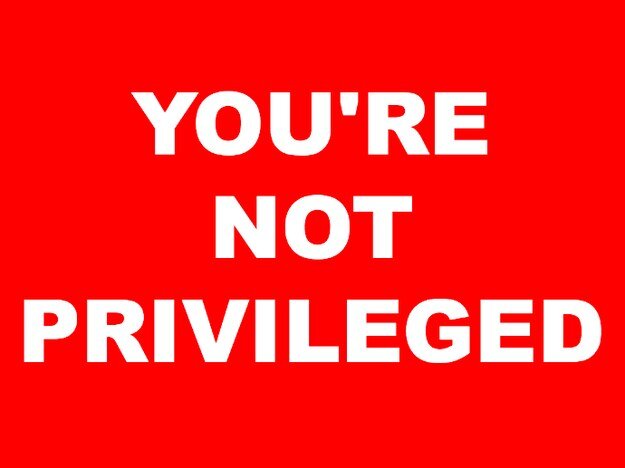On Calculating Privilege
Every once in a while, I’ll see something like this start circulating on the internet. “Start at zero and calculate your privilege!” these activities will exclaim. If I were to do this, I would score around a -480. This is wrong for a multitude of reasons. First, I am privileged. I go to Galloway, for goodness sake. I have a supportive family; I live in a country where my love can be legally recognized. On the flip side, I am mixed race, non-binary, and am neurodivergent living in Georgia. But because we can’t calculate privilege, how can these things cancel out? The answer is they don’t. I can be privileged in some scenarios and not privileged in others.
For example, there is a big difference between being LGBT and in the United States, where same-sex marriage is legal, then being LGBT in Yemen, where same-sex adultery is punishable by death. Then, of course, there are the problems that it has even if you ignored all that. It uses the R-slur and has no option for poor mental health, lists only eight professions and only sexualities with no romantic orientations. Why is being poor only -25 points, but being trans is -500? Why is being Jewish a +25? I have so many questions for whoever made this, and I have a sneaking suspicion that making this was intended to comfort those who are privileged into saying they are not as privileged as they are.
Here’s the issue: you can’t calculate a life experience. You just can’t. Someone’s life doesn’t fit into neat little categories and you can’t assign a point system for experiences you don’t know the whole truth about.
What I’m trying to get to is this: who is to decide what amount of pain your life has but you? There is no magical test to determine your pain level. Pain should not be in comparison to other people’s pain - if you are in pain because of something you cannot control about your life, you’re in pain because of something you can’t control. That’s a lack of privilege; that’s the system working against you. But this type of pain shouldn’t be compared. Yes, someone always has it worse. Yes, things could be worse for you.
I’ve written about “Oppression Olympics” before. If you’ve forgotten, here's what I said. It boils down to this: “The social acceptance of one group is no more important than that of others, nor will that acceptance become a detriment to other minority groups.” The liberation of one group will not harm other groups striving for the same goal. Identity is complex, and if you’re like me, sometimes you will be privileged and other times you will not. Stop competing to have it the worst.
By Mika Abney

